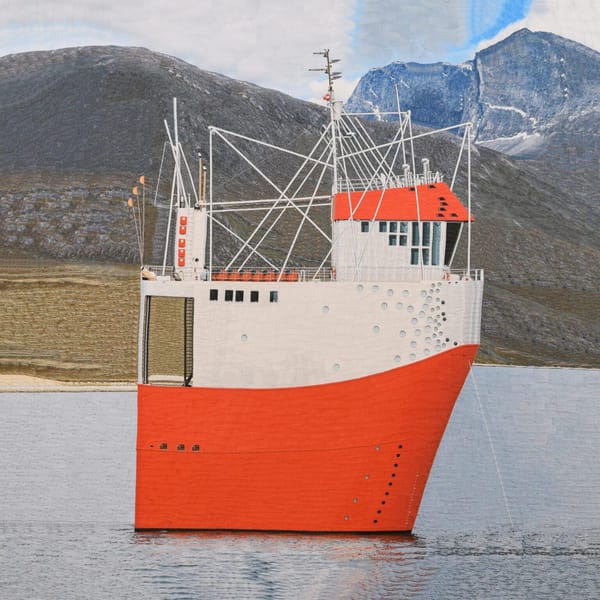Iranian History Lesson

ABBAS MILANI – Iranian leaders today are learning all the wrong lessons from the Shah’s demise.

Reprinted with permission from the Post-War Watch
You believe that the fall of the Shah in 1979 was a crucial event in the region. How exactly did the Shah’s collapse change and affect the Middle East, from the wars in Afghanistan and Iraq to the rise of radical Islam?
The Shah’s collapse created an Iran that has today become a dedicated enemy of the United States, one which would willingly challenge the whole idea of democracy. The [Iranian] regime believes that many of the desires for democracy are simply gimmicks of the West, and that Islamic societies must go back to their roots. This shift marked the beginning of the rise of radical Islam. In recent years, the Western operations in the region have contributed to Iran’s rise in power in the region. Iran was very active throughout the US operations in the Middle East, and — going back to the question — it was the fall of the Shah that created a country willing to openly work against the West.
What lessons should modern leaders in the region draw from his mistakes?
The lesson modern leaders in the region can draw from the Shah is this: if autocratic leaders are pressured, they should make concessions at the right time. If the Shah had made concessions at the appropriate time, he could have survived. The Shah made concessions to the people, but only when it was too late for them to matter — like today’s Khomeini, the Shah didn’t recognize that unrest was rooted in true social problems. He saw it instead as unrest spurred by outside forces. Instead of attending to the unrest, he tried to assuage his Western allies — the British, Americans — because he saw them as the root of the problem, when in fact they were not. Khomeini today is learning all the wrong lessons from the Shah — he thought that the Shah fell because he made concessions. The Shah fell because he did not make the concessions at the right time, when he could have moved the country towards a more democratic way of conducting politics.
The Shah was a very paranoid man. Do you think that the current regime in Iran demonstrates some of the same qualities as the Shah?
Khomeini is made of the same material and is paranoid. He does not accept discontent in Iran, which is wide and rather deep; in June of 2009, three million people came out and chanted “death to the dictator,” and they were referring to him. But he, in a very similar way to the Shah, attributed it all to Israel and the US and Britain; he wanted claim that the democratic aspirations of the people are part of a western-concocted conspiracy. Stanford University, particularly, is a frequent subject of this paranoid view. The Iranian regime often points its finger at Stanford, [claiming that the university is] the main fermentors of this democratic revolution. But it’s all nonsense. The original source of discontent against the Shah was the emerging middle class, increasingly educated people, who wanted a share of political power, very much the same as today. And like then, both of the leaders are paranoid: the Shah and Khomeini. Both of them are unwilling to make concessions. Both of them think that making concessions will open the floodgates. The Shah realized that this was the case, but when it was already too late, he realized that in November 1978. By then he was already a goner.
I think that when Khomeini finally realizes that he is taking the wrong lesson from the Shah, and that he should compromise, it will be too late for him. I think that it has perhaps already become too late for him. His kind of paranoid view led to the revolution in 1979, and leads to the same view that the regime has today as well: one that sees everything which it doesn’t like as concocted by conspirators. For example, the regime likes the movement in Bahrain, which is, in fact, a genuine democratic movement. It doesn’t like the movement in Syria, although the Syrian dictator is even more bloodthirsty and corrupt than the Bahraini royal family. The Iranians says the Syrian uprising is concocted by Israel, by the United States. But they say that Bahrain is genuine. So that is both a paranoid view and kind of a Machiavellian choosing of what movement you like, and what movement you find dangerous. Clearly they find Syria dangerous, because if Assad goes, there goes their only ally in the Muslim world — there goes their route to resupplying Hezbollah. A lot depends on the survival of Assad. And thus, instead of accepting the will of the people, as Turkey has, for example, Iran has become the sole supporter of Syria, and repeats the same nonsense as Assad repeats, that the democratic aspirations of the Syrian people are concoctions of the West and Israel.
Over the last few months, analysts have increasingly come to see Iran as an existential threat to the West and her allies due to her nuclear program. Is this interpretation still legitimate, and would the regime be prepared to use the weapons that they are presumedly developing?
First of all, you would have been right up to a few weeks ago. It appeared that a few weeks ago, the Israelis began to change their view. The head of Mossad, only ten or twelve days ago, said that if Iran gets the nuclear bomb, that does not necessarily pose an existential threat for Israel. It isn’t an existential threat, because, as you know, Israel has nearly 200 nuclear weapons; it has nuclear armed submarines right off the Iranian coast; it has agreements with the United States that demand of the US to come in and help if the Iranians attack. More and more the notion that Iran, with one or two bombs, is an existential threat to Israel, is being rethought, but the fact that it is a threat is clearly understood — that the Iranians will become even more arrogant, even more impervious to outside pressure. And the consequences for the rest of the region are serious, because everyone else is going to try to do the same thing; a few days ago China signed a multibillion dollar deal with Saudi Arabia — amongst the things China is going to give the Saudis are plans for a nuclear reactor. The Saudis are clearly getting ready to go nuclear if Iran goes nuclear; Kuwait, Bahrain, Turkey, Egypt — all of them are lining up. If Iran goes, and develops a bomb, I think that you can expect many of these countries to also go.
This reaction eventually ends the Non-Proliferation Treaty (NPT). The end of NPT means the beginning of a much, much more dangerous world, not just for Israel, but for everybody everywhere. Just look at Iraq; Saddam Hussein might have had a bomb in 1985 if Israel hadn’t destroyed their site in 1981; how would he have used it? To have these bombs in the hands of these bloodthirsty, ruthless, amoral people is dangerous — and unfortunately there are too many of these type of people in the Middle East — and it doesn’t help the future of this region, since these type of people may very well use them.
You taught in Iran during the late 1970s, when the revolution had reached the boiling point. Are there similarities between the 1979 revolutionaries and those seeking to achieve a democratic Iran today?
I have written several articles about this. My belief is that the same forces that came together to create the 1979 Revolution — and for me, the 1979 Revolution was a democratic one, and not one for a clerical despotism that has become worse than the Shah — these same forces that wanted democracy in ’79 are today more powerful in terms of their number; in terms of their education; in terms of their economic prowess; and they still want democracy. They are at the forefront of the new movement. It is very much the June 2009 democratic uprising in Tehran that, in my mind, continues today in 2012 — what’s more, I think that the recent [rumblings] are the continuation of the 1979 Revolution, which in itself was the continuation of the 1905 Constitutional Revolution. Iranians have been trying to get democracy for 100 years, and they keep coming close, and they keep getting aborted. But maybe next time — next time will be the third time.
***
ABBAS MILANI is the Hamid & Christina Moghadam Director of Iranian Studies at Stanford University, and a founding co-director of the Iran Democracy Project at the Hoover Institution. Between 1975 and 1979, he was a research fellow at the Iranian Center for Social Research, and a professor of law and political science at the National University of Iran, and later at the University of Tehran, during which time he was imprisoned by the Shah for Marxist teaching. He left Iran following the 1979 Iranian Revolution.





